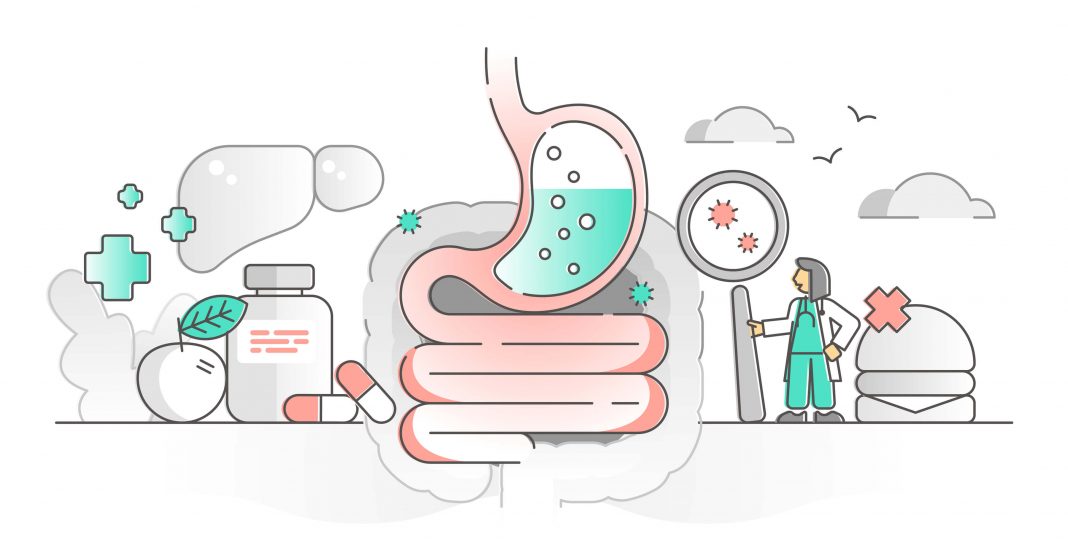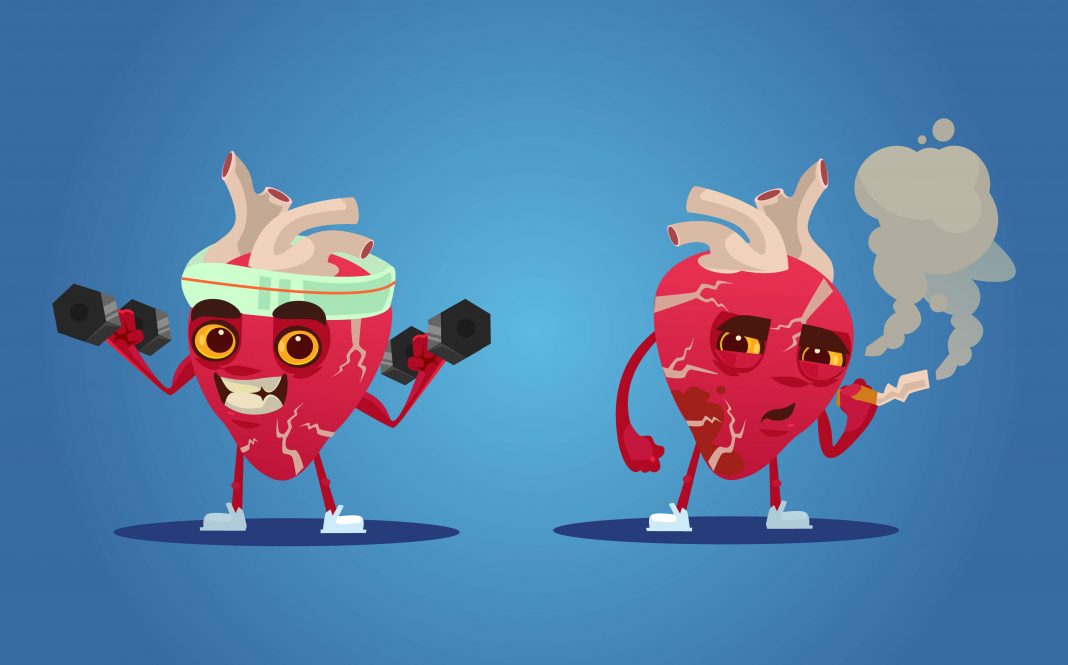Are you tired of feeling bloated and uncomfortable after meals? It’s time to tune in to your gut and give your stomach the attention it deserves. In this article, we will explore effective strategies to reduce bloating and improve digestion, so you can feel lighter, healthier, and more energised.
Your gut health plays a crucial role in your overall well-being. When your digestive system is functioning optimally, you can absorb nutrients more efficiently, eliminate waste properly, and experience fewer digestive discomforts. However, factors such as poor dietary choices, stress, and lack of exercise can disrupt the delicate balance in your gut, resulting in bloating and digestive issues.
But fret not! We’ve got you covered with practical tips and tricks to support your gut health and banish bloating for good. From adopting a gut-friendly diet filled with fiber-rich foods to incorporating stress-reducing activities into your daily routine, we’ll guide you towards a happier, healthier stomach.
It’s time to stop ignoring your gut and start listening to its cues. Join us as we uncover the secrets to reducing bloating and improving digestion. Get ready to say goodbye to discomfort and hello to a happier gut!
Understanding Bloating and Its Causes
Bloating is a common yet uncomfortable sensation that many people experience, often characterised by a feeling of fullness or swelling in the abdomen. This condition can manifest after meals, during menstrual cycles, or even during periods of heightened stress. Understanding bloating is essential for effectively managing and alleviating its symptoms.
There are several causes of bloating, ranging from dietary choices to underlying health conditions. Consuming foods that are high in fiber, such as beans and lentils, can sometimes lead to gas production, resulting in discomfort.
The Importance of Gut Health
Gut health is often referred to as the cornerstone of overall well-being, and for good reason. The gut houses a complex ecosystem of microorganisms, collectively known as the gut microbiota, which plays a vital role in digestion, immune function, and even mental health. When your gut is in balance, it can efficiently break down food, absorb nutrients, and eliminate waste.
A healthy gut can also influence your mood and energy levels. Research indicates that the gut-brain connection is profound, with gut health affecting neurotransmitter production and consequently impacting feelings of anxiety and depression. Therefore, taking care of your gut can lead to improvements not only in physical health but also in emotional well-being.
Common Digestive Issues and Their Impact on Overall Health
Digestive issues are more common than many people realise, and they can significantly impact overall health. Conditions such as irritable bowel syndrome (IBS), gastroesophageal reflux disease (GERD), and food intolerances can lead to chronic discomfort, affecting daily life and productivity. Understanding these issues is essential for finding effective solutions and improving quality of life.
Irritable bowel syndrome is a functional gastrointestinal disorder characterised by symptoms like bloating, abdominal pain, and changes in bowel habits. While the exact cause of IBS remains unclear, factors such as diet, stress, and gut microbiota imbalances are known contributors. Managing IBS often requires a multidisciplinary approach, including dietary changes, stress management, and lifestyle adjustments.
Strategies to Reduce Bloating Naturally
Fortunately, there are several natural strategies you can adopt to reduce bloating and improve your digestive health. First and foremost, consider your eating habits. Eating slowly and mindfully can significantly reduce the amount of air swallowed during meals, lowering the chances of bloating. Chewing food thoroughly also aids in digestion, making it easier for your stomach to break down nutrients.
Incorporating digestive-friendly herbs and spices into your meals can also alleviate bloating. Ginger, peppermint, and fennel have been traditionally used for their digestive benefits, helping to soothe the stomach and reduce gas. Herbal teas made from these ingredients can be a delicious and effective way to support digestion after meals.
The Role of Diet in Improving Digestion
Your diet plays a pivotal role in digestive health, and making mindful food choices can lead to significant improvements. A diet rich in whole foods, including fruits, vegetables, whole grains, and lean proteins, supports gut health by providing essential nutrients and fiber. Fiber, in particular, is crucial for promoting regular bowel movements and preventing constipation, a common contributor to bloating.
On the other hand, processed foods high in sugar, unhealthy fats, and artificial additives can negatively impact digestion. These foods can disrupt the gut microbiota balance, leading to inflammation and discomfort. Opting for fresh, nutrient-dense foods can help nourish your gut and keep it functioning optimally.
Incorporating Gut-Friendly Foods into Your Daily Routine
Incorporating gut-friendly foods into your daily routine doesn’t have to be complicated. Start by including a variety of colorful fruits and vegetables in your meals, as they are rich in vitamins, minerals, and antioxidants. Leafy greens, berries, and cruciferous vegetables like broccoli and cauliflower are excellent choices that support digestion and provide essential nutrients.
In addition to fruits and vegetables, whole grains are a fantastic source of fiber, which promotes digestive health. Opt for whole grain options like quinoa, brown rice, and whole wheat bread instead of refined grains. These choices not only provide more fiber but also enhance nutrient absorption, contributing to overall gut health.
Don’t forget to include healthy fats in your diet, as they play a vital role in digestion and nutrient absorption. Foods like avocados, nuts, seeds, and olive oil are excellent sources of healthy fats that can help keep your digestive system functioning smoothly. By thoughtfully incorporating these gut-friendly foods into your daily meals, you can create a balanced diet that supports optimal digestion and reduces bloating.
The Benefits of Probiotics for Digestive Health
Probiotics are live microorganisms that provide numerous health benefits, particularly for digestive health. These beneficial bacteria help maintain the balance of gut microbiota, supporting digestion and immune function. By incorporating probiotics into your diet, you can enhance gut health and potentially reduce bloating and other digestive discomforts.
One of the most well-known sources of probiotics is yogurt, especially varieties containing live and active cultures. Additionally, fermented foods such as kefir, sauerkraut, kimchi, and kombucha are rich in probiotics and can be easily integrated into your meals or enjoyed as snacks. These foods help populate your gut with beneficial bacteria, promoting a healthier digestive environment.
Lifestyle Changes to Support a Healthy Gut
While dietary choices are crucial for gut health, lifestyle factors also play a significant role in digestion. Regular physical activity is one of the most effective ways to support a healthy gut. Exercise stimulates the muscles in the digestive tract, promoting regular bowel movements and reducing the risk of constipation and bloating. Aim for at least 150 minutes of moderate-intensity exercise each week, incorporating activities you enjoy, such as walking, swimming, or yoga.
Managing stress is another essential component of maintaining a healthy gut. Chronic stress can disrupt digestive function and lead to issues like bloating or indigestion. Incorporating stress-reducing practices into your daily routine, such as meditation, deep breathing exercises, or yoga, can help calm the mind and promote better digestion. Taking regular breaks and engaging in hobbies can also contribute to stress relief and overall well-being.
Finally, prioritise getting enough sleep, as poor sleep quality can negatively impact gut health. Aim for 7-9 hours of sleep each night, and establish a consistent sleep schedule to promote better rest. Quality sleep supports various bodily functions, including digestion, and can help reduce bloating and other digestive issues.
Seeking Professional Help for Persistent Digestive Issues
If you’re experiencing persistent digestive issues, it’s essential to seek professional help. While many digestive discomforts can be managed with dietary and lifestyle changes, some conditions may require medical intervention. A healthcare professional can help identify underlying causes, conduct necessary tests, and develop a personalised treatment plan.
Consulting with a registered dietitian can also be beneficial, as they can provide tailored dietary advice and support for managing specific digestive concerns. They can help you identify trigger foods, develop a balanced meal plan, and offer practical strategies for improving gut health. Working with a professional can empower you to take control of your digestive health and address any ongoing issues effectively.
Taking Care of Your Gut for Improved Overall Well-Being
In conclusion, taking care of your gut is essential for achieving improved overall well-being. By understanding the causes of bloating and implementing effective strategies, such as adopting a gut-friendly diet, incorporating probiotics, and making lifestyle changes, you can support your digestive health and reduce discomfort.
Listening to your gut and prioritizing its needs can lead to a happier, healthier life. Remember that everyone’s digestive system is unique, so it may take some time to find the right combination of strategies that work for you. Don’t hesitate to reach out for professional support if needed, as expert guidance can make a significant difference in your journey toward better gut health.
Ultimately, investing in your gut health is an investment in your overall well-being. By making mindful choices and being attentive to your body’s signals, you can cultivate a healthier digestive system, banish bloating, and enjoy a more vibrant life. So, start today—your gut will thank you!




